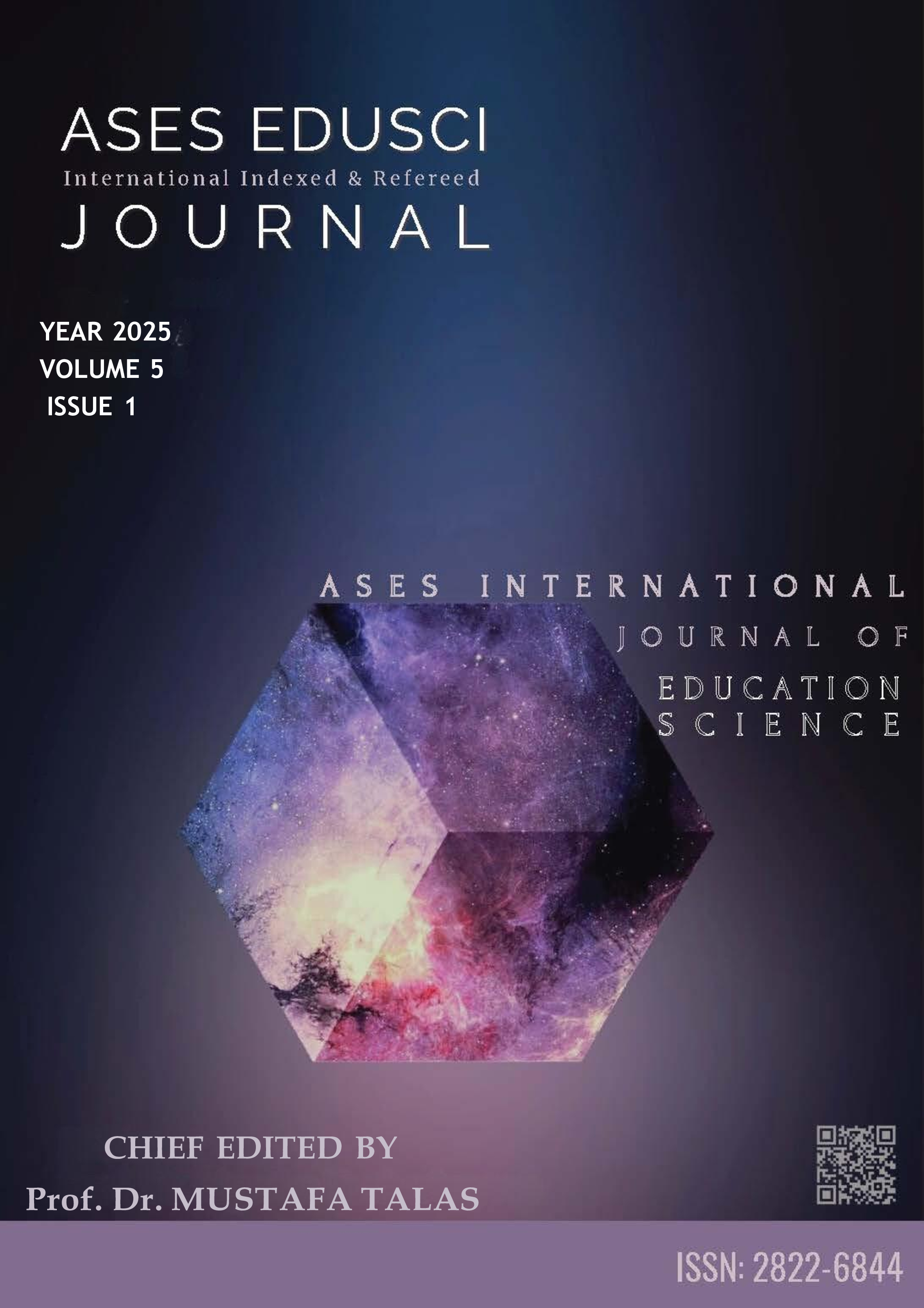Language Shift in Sinhala-Speaking Families: Psychological and Social impacts on Children
DOI:
https://doi.org/10.5281/zenodo.15719071Anahtar Kelimeler:
Cognitive dissonance, Communication, Early childhood education, LanguageÖzet
This paper explores the psychological and social impacts of language shift within Sinhala-speaking families in Sri Lanka, particularly focusing on children raised with English as their first language whose family background remains Sinhala for generations. As English is increasingly linked with upward mobility, elite education, and global opportunity, more and more Sinhala-speaking urban families are investing in early exposure to English. But this development comes with the price of decreasing intergenerational communication with grandparents and other extended family members who speak Sinhala only. Using literature-based thematic analysis, this study investigates the influence of early language selection on emotional development, cultural identity, and family unity. Interference with communally shared linguistic schemata always results in sub-optimal emotional bonding, restricted access to ancestral narratives, and shortened participation in Sinhala-dominant social engagements. Early childhood between the ages of 0 and 5 years is the age of language development, emotion regulation, and socialization; disruption at this age based on language conflict may lead to cognitive dissonance and identity confusion. Cross-sectional research implies that English-first children may display cognitive skills and world view but also social alienation and affective distance with their native culture. Consequently, Sinhala-first children are to show closer family connections and cultural origins, albeit with English lagging. Systemic problems in early childhood education, including the absence of standardized preparation for Sri Lankan pre-school English-medium teachers, are also brought to light by the study as being likely to work against bilingual benefits in development. The article finishes by recommending bilingual education policy, intergenerational use of the language, and national institutions to ensure both linguistic expertise and cultural continuity. In balancing global fluency and cultural embeddedness, Sri Lanka can produce a generation that is not only competitive internationally but also well entrenched in family and national identity.
Referanslar
ACEQA. (2024). Qualification requirements. Retrieved from https://www.acecqa.gov.au/qualifications-0/qualification-requirements
Best Chance Pre-School. (2024). Job advertisement. Retrieved from https://lk.linkedin.com/jobs/view/preschool-teacher-at-best-chance-pre-school-4127861326
Bialystok, E. (2001). Bilingualism in development: Language, literacy, and cognition. Cambridge University Press.
Canagarajah, A. S. (2005). Reclaiming the local in language policy and practice. Routledge.
Central Bank of Sri Lanka. (2022). Annual Report 2021. Colombo: Central Bank of Sri Lanka.
Cummins, J. (2000). Language, Power and Pedagogy: Bilingual Children in the Crossfire. Multilingual Matters.
De Houwer, A. (2007). Parental language input patterns and children's bilingual use. Applied Psycholinguistics, 28(3), 411–424.
Department of Census and Statistics. (2020). Household Income and Expenditure Survey 2019/20. Colombo: Department of Census and Statistics, Ministry of Finance.
Dewaele, J.-M., & Wei, L. (2012). Multilingualism, empathy and multicompetence. International Journal of Multilingualism, 9(4), 352–366.
Espinosa, L. M. (2015). Getting It Right for Young Children from Diverse Backgrounds: Applying Research to Improve Practice. Pearson.
Fillmore, L. W. (1991). When learning a second language means losing the first. Early Childhood Research Quarterly, 6(3), 323–346.
Get Into Teaching UK. (2024). Early Years Teacher overview. Retrieved from https://getintoteaching.education.gov.uk
Guardado, M. (2002). Loss and Maintenance of First Language Skills: Case Studies of Hispanic Families in Vancouver. Canadian Modern Language Review, 58(3), 341–363.
Gunesekera, M. (2005). The postcolonial identity of Sri Lankan English. Katha Publishers.
Jobseeker.lk. (2024). Preschool teacher/assistant teacher. Retrieved from https://jobseeker.lk/preschool-teacher-assistant-teacher/
Kenner, C., Ruby, M., Jessel, J., Gregory, E., & Arju, T. (2007). Intergenerational learning between children and grandparents in East London. Journal of Early Childhood Research, 5(3), 219–243.
Milton Keynes Council. (2024). Nursery teacher advert and JD. Retrieved from https://www.milton-keynes.gov.uk
Perera, M. (2019). English, elitism, and education in post-colonial Sri Lanka. Colombo: University of Colombo Press.
Perera, S. (2015). Language, Class and Power in Postcolonial Sri Lanka. Social Scientists' Association.
Ranaweera, K. G. N. U. (2021, January). Theories, expectations and gaps: Field research as an effective teaching tool in social sciences. SSRN Electronic Journal. https://doi.org/10.2139/ssrn.3810067
Ranaweera, N. (2024, December). Fear of crime and gendered socialization in Sri Lanka: The influence of traditional practices. Paper presented at the II. International Marmara Scientific Research Congress, Istanbul, Türkiye.
Shin, S. J. (2013). Bilingualism in Schools and Society: Language, Identity, and Policy. Routledge.
UNESCO. (2008). Mother tongue matters: Local language as a key to effective learning. Paris: UNESCO.
Wong Fillmore, L. (1991). When learning a second language means losing the first. Early Childhood Research Quarterly, 6(3), 323–346.
XpressJobs. (2024). Preschool teacher vacancies. Retrieved from https://www.xpress.jobs/jobs/view/169420
İndir
Yayınlanmış
Nasıl Atıf Yapılır
Sayı
Bölüm
Lisans
Telif Hakkı (c) 2025 ASES EDUSCI (INTERNATIONAL JOURNAL OF EDUCATIONAL SCIENCES) ISSN: 2822-6844

Bu çalışma Creative Commons Attribution-NonCommercial 4.0 International License ile lisanslanmıştır.


